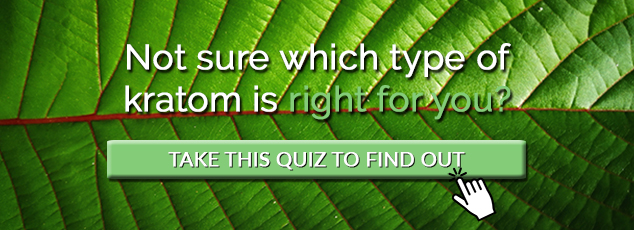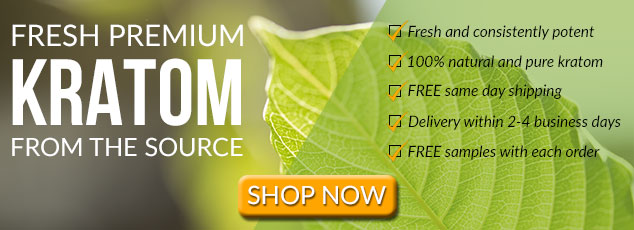Picture this: You’re standing in a gas station in Ohio, staring at colorful packages of something called kratom. Your friend swears it helps with her chronic back pain, but you can’t help wondering – is this stuff even legal? You’re not alone in this confusion. The legal landscape around kratom is like a patchwork quilt, with different rules in different places that can leave even the most careful person scratching their head.
Let’s clear up the confusion once and for all. Think of this as your friendly neighbor explaining the ins and outs of kratom laws over a cup of coffee.
What Exactly Is Kratom?
Before we dive into the legal maze, let’s talk about what kratom actually is. Kratom comes from a tropical tree called Mitragyna speciosa that grows in Southeast Asia – places like Thailand, Malaysia, and Indonesia. It’s actually part of the coffee family, which might surprise you.
For centuries, people in these regions have been using kratom leaves in traditional ways. Workers would chew the fresh leaves to boost their energy during long days in the fields, much like how we might grab a cup of coffee to get through a tough afternoon. They’d also brew it into tea or use it to help with pain and mood.
The kratom you see in stores today usually comes as a green powder made from dried and ground leaves, though you can also find it in capsules, extracts, or even liquid shots. People use it for various reasons – some say it helps with pain, others use it for energy, and some folks have turned to it when trying to get off stronger substances.
The Federal Picture: What Uncle Sam Says
Here’s where things get interesting. At the federal level in the United States, kratom isn’t classified as a controlled substance. That means the federal government doesn’t treat it like illegal drugs such as heroin or cocaine. However, this doesn’t mean the feds are giving it a thumbs up either.
The Food and Drug Administration (FDA) has been pretty vocal about their concerns. They’ve warned people not to use kratom, citing worries about safety, potential for addiction, and lack of proven medical benefits. The FDA has even issued import alerts to try to keep kratom products from entering the country.
Back in 2016, the Drug Enforcement Administration (DEA) actually tried to ban kratom by making it a Schedule I controlled substance. This would have put it in the same category as heroin and LSD. But here’s where things got interesting – the public pushed back hard. Over 23,000 comments poured in, with 99.1% opposing the ban. Congress even got involved, and eventually, the DEA backed down.
So while kratom remains federally legal, it exists in what experts call a “regulatory gray area”. It’s legal because it hasn’t been made illegal, but there’s no official framework governing its safety or quality.
State by State: The Patchwork Quilt
Now here’s where things get really complicated. Even though kratom is federally legal, individual states have taken their own approaches. Some have banned it outright, others have created regulations to make it safer, and many have just left it alone.
States Where Kratom Is Completely Banned
As of July 2025, kratom is illegal in seven states:
-
Alabama – Schedule I controlled substance since 2016
-
Arkansas – Schedule I controlled substance since 2016
-
Indiana – Classified as synthetic controlled substance since 2014
-
Louisiana – NEW BAN effective August 1, 2025
-
Rhode Island – Banned, though KCPA legislation is under consideration
-
Vermont – Banned, but KCPA bill H.416 introduced to lift ban
-
Wisconsin – Schedule I controlled substance
If you’re caught with kratom in these states, you could face serious legal consequences, including fines and even jail time.
States with Local Bans
Some states allow kratom at the state level but have cities or counties that have banned it:
-
California: San Diego and Oceanside
-
Colorado: Denver (illegal for human consumption), Parker, and Monument
-
Florida: Sarasota County
-
Illinois: Jerseyville, Alton, Edwardsville, Herrin (NEW), and Marion (NEW)
-
Mississippi: Union County and over 30 other counties/cities
This means you need to be extra careful about where exactly you’re going, not just which state.
The Kratom Consumer Protection Act (KCPA) States
Here’s where things get encouraging for kratom users. Many states have passed something called the Kratom Consumer Protection Act (KCPA). Instead of banning kratom, these laws regulate it to make it safer.
States with KCPA laws (with 2025 updates):
-
Arizona (2019, age 18+)
-
Colorado – NEW: Kratom registration bill SB 25-072 signed by Governor on May 29, 2025
-
Florida (2023, age 21+) – Additional processor requirements being considered through SB 1734
-
Georgia (2019, age changed from 18+ to 21+ effective January 1, 2025)
-
Nevada (age 18+)
-
Oklahoma (age 18+)
-
Texas (2023 – Kratom Consumer Protection Act passed)
-
Utah
-
Vermont (2024, age 21+)
-
Virginia
-
West Virginia
The KCPA typically includes protections like:
-
Banning sales to minors (usually under 18 or 21)
-
Prohibiting contaminated or adulterated products
-
Requiring proper labeling with ingredients
-
Setting limits on certain alkaloid levels
-
Requiring vendor registration
-
Establishing penalties for violations
Think of KCPA laws as the “middle ground” approach – acknowledging that people want to use kratom while making sure it’s as safe as possible.
Age Restriction States
Some states have decided to allow kratom but restrict sales to adults:
-
Illinois (18+)
-
Minnesota (18+)
-
New Hampshire (18+)
-
Oregon (21+)
-
South Carolina (18+)
-
Tennessee (21+)
These states recognize that kratom might be okay for adults to use but want to keep it away from kids.

International Picture: Around the World
If you’re thinking about traveling with kratom or you’re just curious about the global perspective, here’s what you need to know: kratom laws vary wildly around the world.
Countries where kratom is legal include:
-
Canada (legal to possess, but can’t be sold for human consumption)
-
Germany (legal but not for human consumption)
-
Netherlands
-
Spain
-
Mexico
-
Brazil
Countries where kratom is banned include:
-
United Kingdom (banned since 2016)
-
France (banned since 2020)
-
Australia
-
Sweden
-
Malaysia (ironically, one of kratom’s native countries)
-
Singapore
-
Russia
Interestingly, Thailand – where kratom grows naturally and has been used for centuries – legalized it for medical use in 2018 after previously banning it. This shows how attitudes toward kratom are evolving even in its home countries.
How to Stay on the Right Side of the Law
So what’s a person to do with all this confusing information? Here are some practical tips:
Before You Buy or Use
-
Check your local laws first. Don’t assume that because kratom is legal in your state, it’s legal in your specific city or county.
-
Look up current information. Kratom laws change frequently, so that blog post from 2020 might be outdated.
-
Check official government sources. State government websites and local ordinances are your best bet for accurate, up-to-date information.
If You’re Traveling
Traveling with kratom requires extra caution:
-
Research your destination thoroughly. Check both state and local laws for wherever you’re going.
-
Keep kratom in original packaging with clear labels.
-
Bring documentation like receipts and lab reports if you have them.
-
Check TSA guidelines. The Transportation Security Administration doesn’t ban kratom, but they might flag it for inspection.
-
Don’t risk international travel unless you’re absolutely certain kratom is legal at your destination.
If You’re in a Legal Gray Area
If you live somewhere with unclear kratom laws:
-
Stay informed about pending legislation.
-
Consider contacting local representatives to voice your opinion on kratom regulation.
-
Buy from reputable vendors who follow good manufacturing practices.
-
Use kratom responsibly to avoid drawing negative attention to the community.
Looking Ahead: The Future of Kratom Laws
The kratom legal landscape is constantly evolving. As of 2023, Congress has introduced a federal Kratom Consumer Protection Act, though it hasn’t passed yet. This could potentially create nationwide standards for kratom safety and quality.
Meanwhile, more states are considering their own kratom laws. Some are looking at bans, while others are exploring regulation. The trend seems to be moving toward regulation rather than outright bans, especially as more research becomes available and advocacy groups make their voices heard.
What’s driving this change? A few things:
-
Growing public awareness of kratom’s potential benefits and risks
-
Advocacy efforts by organizations like the American Kratom Association
-
Scientific research providing more data about kratom’s effects
-
Recognition that prohibition often doesn’t work and regulation might be better
The Bottom Line
Navigating kratom legality doesn’t have to feel like solving a puzzle. Here’s what you need to remember:
-
Kratom is federally legal in the United States but exists in a regulatory gray area.
-
Five states have banned kratom completely: Alabama, Arkansas, Indiana, Rhode Island, and Wisconsin.
-
Many states have embraced regulation through KCPA laws rather than bans.
-
Local laws matter – even in legal states, some cities and counties have their own bans.
-
International travel requires extra caution as many countries have banned kratom.
-
The legal landscape is changing rapidly, so staying informed is crucial.
The key is doing your homework before you buy, use, or travel with kratom. When in doubt, err on the side of caution. It’s better to skip kratom than to end up in legal trouble.
Remember, just because something is legal doesn’t necessarily mean it’s safe for everyone. Like any substance that affects your body and mind, kratom deserves respect and careful consideration. Whether you’re dealing with chronic pain, trying to overcome addiction, or just curious about natural alternatives, make sure you’re making informed decisions based on both the legal realities and the potential health impacts.
The kratom story is still being written, with new chapters added regularly through legislation, research, and real-world experiences. By staying informed and engaged, you can help ensure that future kratom laws are based on science, compassion, and common sense rather than fear and misunderstanding.



Leave a Reply